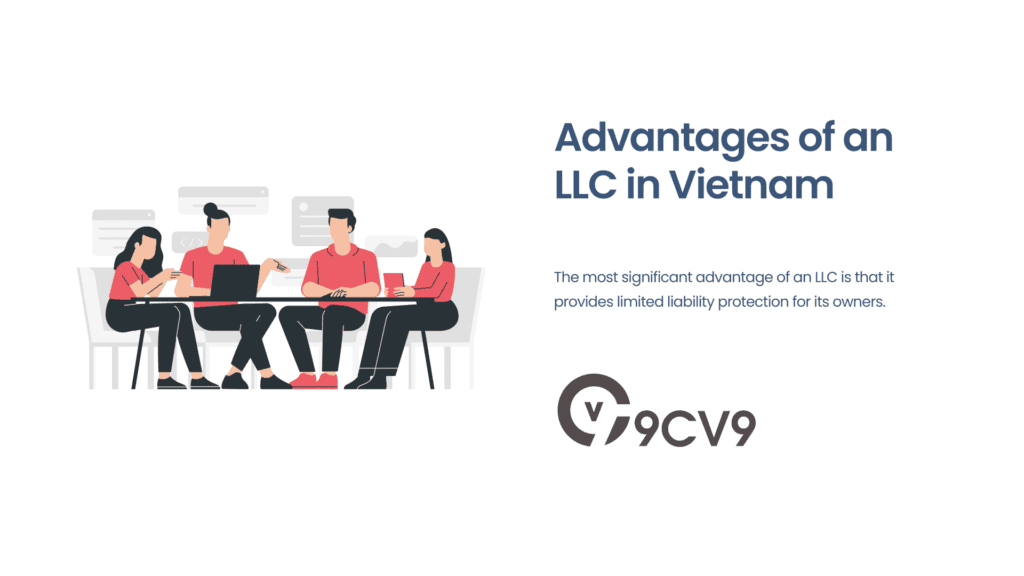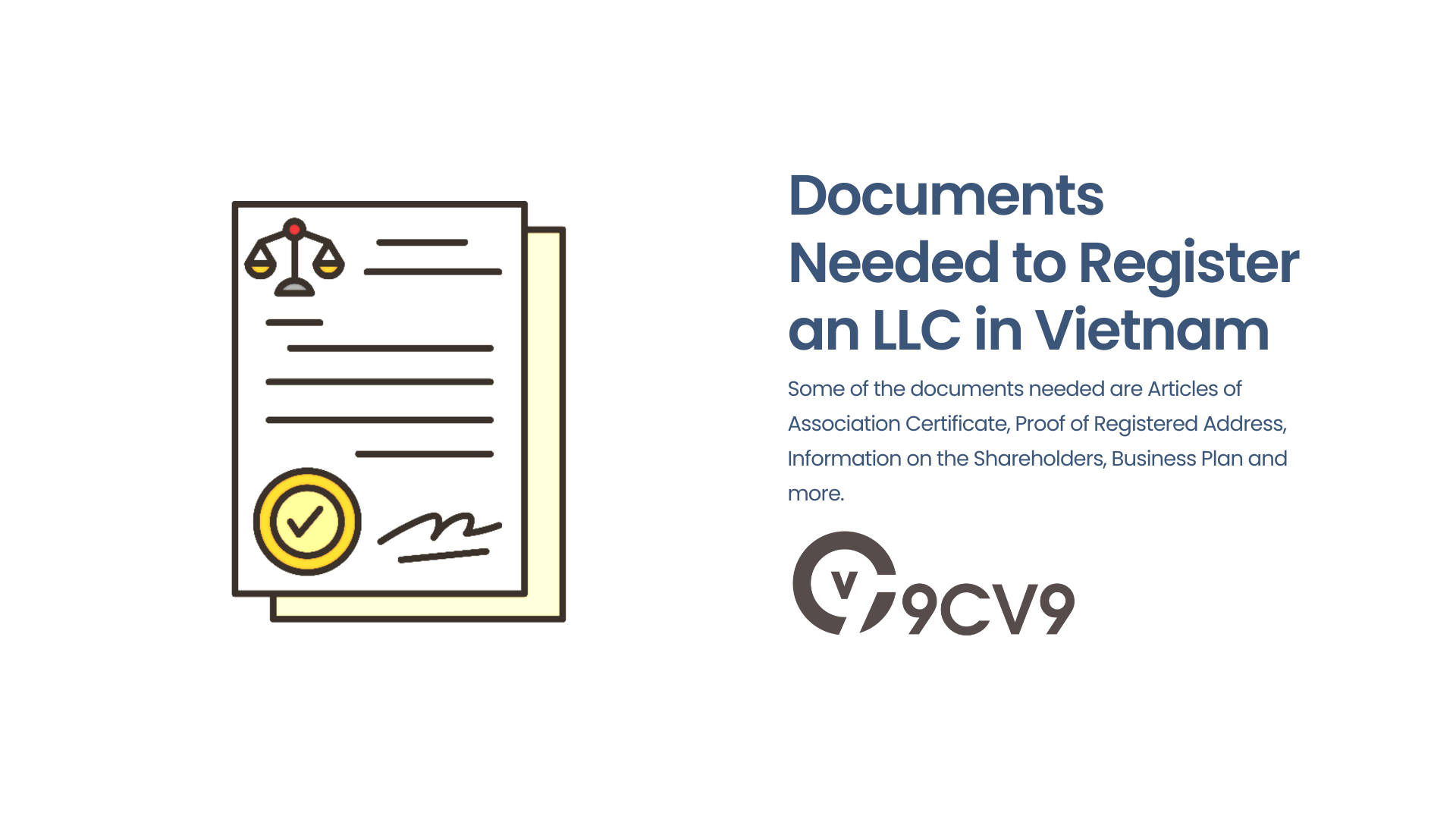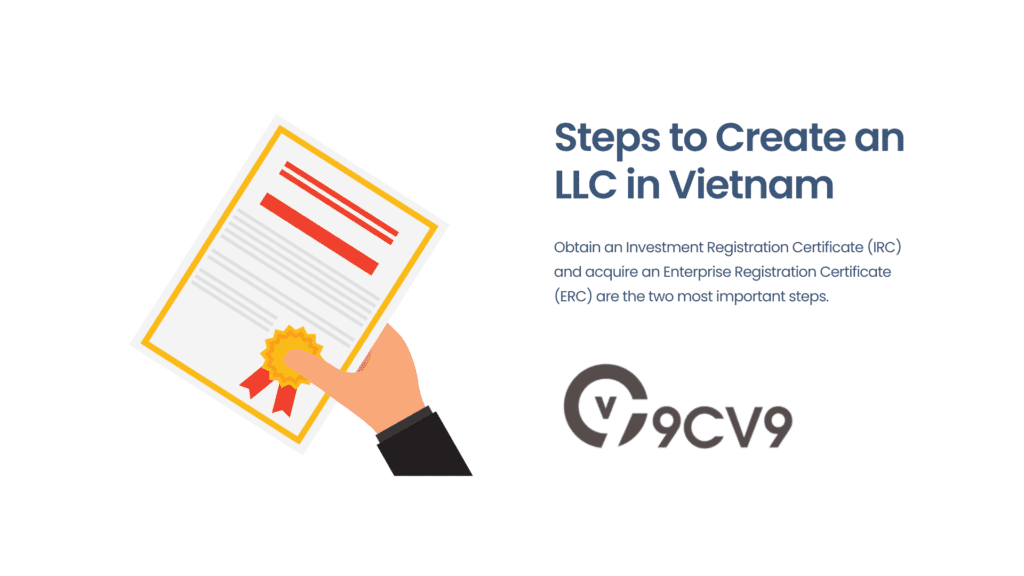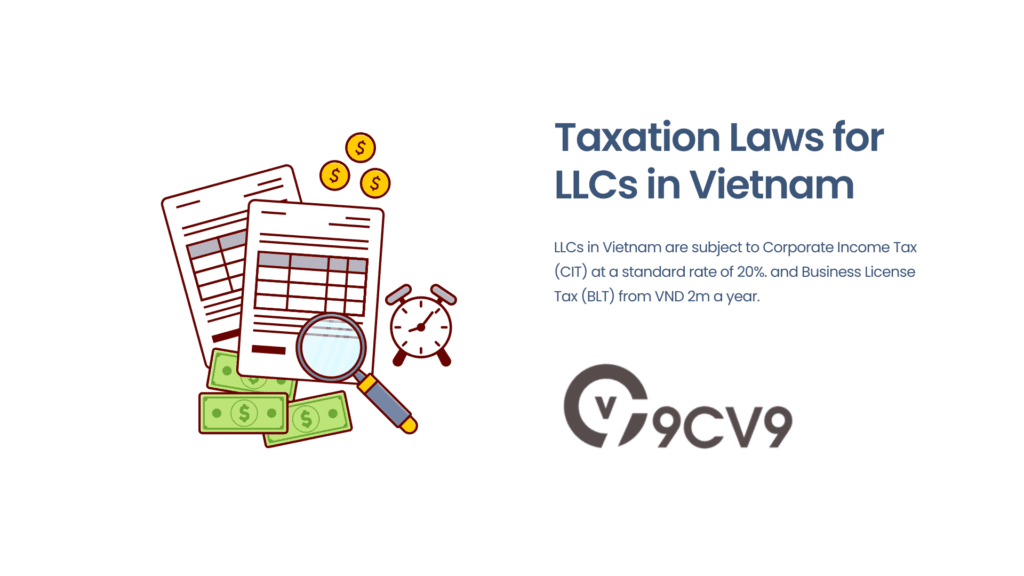Key Takeaways
- Careful planning is essential for starting an LLC in Vietnam, as it requires a thorough understanding of legal requirements and the business environment.
- Choosing the right business structure and name, complying with legal requirements, protecting intellectual property, and having a comprehensive business plan is crucial for success.
- Seeking professional advice, continuously monitoring business performance, and adapting to changes in the market environment can help establish a successful and sustainable LLC in Vietnam.
Starting a business in Vietnam can be a daunting process, with various legal and regulatory requirements to navigate.
According to the World Bank, Vietnam ranks 70 among 190 economies for ease of doing business.
This shows that setting up a business in Vietnam can be tedious, arduous, and hard.
Given the many different options of corporate structures, one can consider when setting up a business in Vietnam, which one is the best?
In this article, we will run through one popular option that we will recommend for all foreigners to consider when setting up a business in Vietnam: The Limited Liability Company (LLC), which offers many benefits and flexibility in management.
In fact, 9cv9, our company which is based in Vietnam is an LLC, which confers many benefits on our existing corporate structure and operating model.
An LLC in Vietnam is a business structure separating personal and business liabilities, ensuring that the owner’s assets are protected from business liabilities.
The LLC is a hybrid entity that combines the advantages of both a corporation and a partnership, making it an ideal choice for many small and medium-sized businesses in Vietnam.
The ownership structure is an important consideration when establishing an LLC in Vietnam. There are two types of LLCs: single-member and multiple-member companies.
While there is no limit on the number of members in a multiple-member LLC, the total number of members cannot exceed 50.
When it comes to the ownership of an LLC in Vietnam, investors can be either corporations or individuals.
This means that foreign investors are permitted to hold ownership stakes in Vietnamese LLCs, subject to certain conditions and restrictions.
It’s worth noting that LLCs in Vietnam are not permitted to issue shares.
This means that the ownership structure of an LLC is determined solely by the distribution of membership interests.
Each member’s percentage of ownership is determined by their contribution to the company’s capital.
An LLC can have more than one legal representative who will be responsible for representing the company in its Vietnamese transactions, arbitral disputes, and court proceedings.
The specific responsibilities of all legal representatives must be clearly outlined in the company’s charter.
It’s important to note that while legal representatives are not required to be Vietnamese nationals, at least one representative must maintain a residence in Vietnam.
This can be a challenge for foreign investors who may not have a representative with a valid residence in the country.
And that’s why 9cv9 Corporate Service exists – To offer foreign investors peace of mind by providing legal representatives and virtual offices.
Setting up an LLC in Vietnam is a relatively straightforward process, but it is essential to understand the legal requirements, regulations, and taxation laws to ensure a smooth and successful launch.
Additionally, with the recent economic growth and increasing demand for foreign investments, Vietnam has become an attractive destination for many entrepreneurs looking to start their own businesses or expand their existing ones.
In this comprehensive guide, we’ll take a deep dive into the process of setting up an LLC in Vietnam, including the benefits, requirements, and steps involved.
We’ll explore the advantages of an LLC over other business structures, the legal requirements for registering an LLC in Vietnam, and the taxation laws that apply to LLCs.
We’ll also provide tips on how to choose the right business name, manage your LLC successfully, and avoid common mistakes that many entrepreneurs make when starting an LLC in Vietnam.
Whether you’re a local entrepreneur looking to set up your own business or a foreign investor seeking to expand your operations in Vietnam, this guide will provide all the information you need to start and grow a successful LLC in Vietnam.
Before we venture further into this article, we like to share who we are and what we do.
About 9cv9
9cv9 is a business tech startup based in Singapore and Vietnam with a strong presence all over the world.
With over six years of startup and business experience, and being highly involved in connecting with thousands of companies and startups, the 9cv9 team has listed some important learning points in this overview of how to register and start a Limited Liability Company in Vietnam.
If your company needs HR, hiring, or corporate services, you can use 9cv9 corporate services. Book a consultation slot here, or send over an email to [email protected].
Starting a Limited Liability Company (LLC) in Vietnam: A Comprehensive Guide in 2023
- Advantages of an LLC in Vietnam
- Documents Needed to Register an LLC in Vietnam
- Steps to Create an LLC in Vietnam
- Taxation Laws for LLCs in Vietnam
- Choosing the Right Business Name for Your LLC in Vietnam
- Managing Your LLC Successfully in Vietnam
- Common Mistakes to Avoid When Starting an LLC in Vietnam
1. Advantages of an LLC in Vietnam

There are several advantages of setting up a Limited Liability Company (LLC) in Vietnam, including:
Limited Liability
The most significant advantage of an LLC is that it provides limited liability protection for its owners.
This means that the personal assets of the owners are protected from business liabilities, and they are only liable up to the amount of their investment in the company.
This protection gives entrepreneurs the freedom to take risks without fear of losing their personal assets.
Flexible Management
An LLC in Vietnam offers flexibility in management, allowing the owners to choose between managing the company themselves or appointing a third-party manager.
This flexibility allows for more efficient management and decision-making processes.
Separate Legal Entity
An LLC is a separate legal entity from its owners, which means that the company can enter into contracts, own property, and sue or be sued in its own name.
This makes it easier for the company to conduct business and engage in legal transactions.
No Minimum Capital
When it comes to establishing an LLC in Vietnam, there is typically no minimum capital requirement for foreign investors.
This means that you can start a company with just one US dollar in your pocket.
However, the authorities will expect investors to commit a reasonable amount of charter capital based on the scale and business scope of their project.
This is an important consideration, as the amount of charter capital will impact the company’s ability to conduct business and attract potential investors.
It’s worth noting that the commitment to charter capital must be made within 90 days from the date on which the enterprise registration certificate is issued.
This means that investors must plan and prepare accordingly to ensure they have the necessary funds available to commit to the charter capital.
The commitment to charter capital is not just a legal requirement, it also serves as a demonstration of the investor’s commitment to the business and the local economy.
In addition, a higher amount of charter capital can also help to instill confidence in potential investors, as it signals that the company has the financial backing to support its operations and growth.
Attractive for Foreign Investment
Vietnam has seen significant growth in foreign investment, and setting up an LLC in the country is an attractive option for foreign investors.
An LLC offers the opportunity to participate in the growing Vietnamese market while still benefiting from limited liability protection.
Lower Costs
LLCs in Vietnam are subject to lower corporate compliance costs than joint-stock companies.
Additionally, LLCs are not required to issue shares, which means they do not have to pay stamp duty on share issuance.
Overall, an LLC in Vietnam offers many benefits for entrepreneurs and investors looking to set up a business in the country.
However do note that you need to pay as of 2023, two million Vietnamese Dong (“2,000,000 VND”) per year for the business license tax (if your registered capital is under 10 billion Vietnamese Dong). If your registered capital is above 10 billion Vietnamese Dong, then you need to pay three million Vietnamese Dong (“3,000,000 VND”) per year for the business license tax
The combination of limited liability protection, flexible management, and tax benefits make it a popular choice for small and medium-sized businesses.
2. Documents Needed to Register an LLC in Vietnam

Some of the documents below needed to register an LLC in Vietnam are:
- Certificate showing the Investment Amount: When registering an LLC in Vietnam, one of the necessary documents is a certificate that shows the amount of investment required. This document will specify the amount of capital that must be committed to the business within a certain timeframe.
- Articles of Association Certificate: Another important document required to establish an LLC in Vietnam is an Articles of Association certificate. This document outlines the internal governance and management structure of the company, as well as the rights and responsibilities of shareholders or members.
- Proof of Registered Address: Proof of registered address is also required when setting up an LLC in Vietnam. This can include a lease agreement, land use certificate, or other documentation that verifies the physical location of the business. We often highly recommend using a Virtual Office to quickly get this requirement done and dusted.
- Information on the Shareholders: In addition to these documents, information on the shareholders or members of the LLC must also be provided. This can include identification documents, contact information, and other relevant details.
- Business Plan: A detailed business plan, including the investment project and the amount of money that will be invested, is also required when establishing an LLC in Vietnam. This plan should outline the company’s objectives, target market, marketing strategy, and financial projections.
- Company Director or Legal Representative and Power of Attorney: Finally, information on the company director or legal representative and power of attorney must be provided. This individual or individuals will be responsible for representing the company in its Vietnamese transactions, arbitral disputes, and court proceedings. The power of attorney gives them the legal authority to act on behalf of the company.
The above documents must be notarized and translated into Vietnamese. If you need help registering an LLC in the fastest and cheapest way possible then you can use 9cv9 corporate services. Book a consultation slot here, or send over an email to [email protected].
3. Steps to Create an LLC in Vietnam

Establishing a Limited Liability Company (LLC) in Vietnam requires a series of important steps, although these may differ depending on the specific business line.
In this guide, we outline some of the key requirements for setting up an LLC in Vietnam:
- Obtain an Investment Registration Certificate (IRC): If the company is foreign-owned, an IRC must be obtained from the Ministry of Planning and Investment (MPI) as part of the registration process.
- Acquire an Enterprise Registration Certificate (ERC): All companies registered in Vietnam must obtain an ERC from the MPI. Read our previously written article on the Enterprise Registration Certificate and how to obtain it easily.
- Create a company seal: A company seal is required for official documents and transactions.
- Register for Tax: Companies must register for tax and obtain an e-signature to facilitate payment through the online system.
- Apply for specific licenses: Depending on the nature of the business, companies may require additional licenses to operate in certain industries or sectors.
- Open a bank account: A bank account must be opened for the LLC to facilitate financial transactions.
- Announce the establishment of the LLC: Companies must announce their establishment and register on the national business portal.
All necessary documents must be notarized and translated into Vietnamese to complete the registration process.
An LLC can be set up in two to three months but can vary.
If you need help registering an LLC in the fastest and cheapest way possible then you can use 9cv9 corporate services. Book a consultation slot here, or send over an email to [email protected].
4. Taxation Laws for LLCs in Vietnam

Limited Liability Companies (LLCs) in Vietnam are subject to certain taxation laws and regulations. Here are some of the key points to consider:
- Corporate Income Tax: LLCs in Vietnam are subject to Corporate Income Tax (CIT) at a standard rate of 20%. However, there are some exceptions and preferential rates for certain industries and activities.
- Value Added Tax: LLCs are also subject to Value Added Tax (VAT) at a standard rate of 10%. Some goods and services may be subject to a reduced rate of 5% or exempt from VAT.
- Personal Income Tax: LLCs must withhold Personal Income Tax (PIT) from the salary and wages of their employees. The PIT rates range from 5% to 35%, depending on the employee’s income level.
- Other Taxes: Other taxes that LLCs may be subject to in Vietnam include Special Consumption Tax, Import and Export Tax, and Environmental Protection Tax.
- Tax Incentives: Vietnam offers tax incentives for certain industries and activities, such as high-tech industries, research and development activities, and investments in disadvantaged areas. These incentives may include reduced CIT rates, VAT exemptions, and tax holidays.
- Tax Reporting: LLCs must keep accurate records of all financial transactions and file tax returns with the relevant tax authorities on a regular basis. Failure to comply with tax reporting requirements may result in penalties and fines.
- Business License Tax (BLT): In Vietnam, a branch office is subject to an indirect corporate tax known as business license tax, which is based on the registered capital or annual turnover of the enterprise. The tax is collected annually before the 30th of January, and the government has exempted newly established businesses from this tax in their first year of operation. This exemption provides some relief for new LLCs that are still in their early stages of establishment and helps them to allocate their resources more efficiently.
It is important for entrepreneurs to understand the tax laws and regulations that apply to their LLCs in Vietnam. If you need help understanding the tax requirements of an LLC in the fastest and cheapest way possible then you can use 9cv9 corporate services. Book a consultation slot here, or send over an email to [email protected].
5. Choosing the Right Business Name for Your LLC in Vietnam
Choosing the right business name for your Limited Liability Company (LLC) in Vietnam is an important step in the registration process. Here are some tips to help you choose a suitable business name:
- Be unique: Your business name should be unique and not similar to any other registered business name in Vietnam. The name should also not violate any regulations related to national security, social order, or morality.
- Be relevant: Your business name should reflect the nature of your business and be relevant to your target market. This can help customers easily identify and remember your brand.
- Be easy to pronounce and spell: Your business name should be easy to pronounce and spell in Vietnamese. This can help avoid confusion and make it easier for customers to find your business.
- Be memorable: Your business name should be memorable and catchy. A memorable business name can help your business stand out in a competitive market and make a lasting impression on customers.
- Conduct a trademark search: Before finalizing your business name, it is important to conduct a trademark search to ensure that the name is not already registered or in use by another business in Vietnam.
- Consider future expansion: Your business name should be flexible enough to allow for future expansion and diversification of your business activities.
- Get feedback: Once you have a shortlist of potential business names, get feedback from family, friends, and potential customers. This can help you identify any potential issues and choose a name that resonates with your target market.
Choosing the right business name is an important step in establishing your LLC in Vietnam.
It is important to take the time to research and select a suitable name that reflects your brand and is compliant with legal requirements.
6. Managing Your LLC Successfully in Vietnam
Managing a Limited Liability Company (LLC) in Vietnam requires careful planning and execution. Here are some tips to help you manage your LLC successfully:
- Develop a business plan: A well-developed business plan can help you set goals, identify opportunities and risks, and create a roadmap for success. It can also help you secure financing and attract potential investors.
- Build a strong team: Building a strong team is essential for the success of your LLC. Hire qualified and experienced staff who share your vision and are committed to achieving your goals.
- Stay compliant with legal requirements: As an LLC in Vietnam, you must comply with all legal requirements and regulations related to business operations, taxation, employment, and licensing. Seek professional advice and assistance to ensure compliance.
- Manage finances effectively: Effective financial management is critical for the success of your LLC. Develop a budget, monitor cash flow, and keep accurate records of all financial transactions.
- Build strong relationships with suppliers and customers: Building strong relationships with suppliers and customers can help you establish a competitive advantage, increase customer loyalty, and secure long-term contracts.
- Embrace technology: Technology can help you streamline operations, improve efficiency, and enhance customer experience. Invest in technology solutions that are relevant to your business needs and goals.
- Stay informed and adapt to changes: Stay up-to-date with industry trends, changes in regulations, and market conditions. Be flexible and willing to adapt to changes to stay competitive and relevant.
Managing an LLC in Vietnam requires a comprehensive approach that involves careful planning, effective execution, and continuous improvement.
By following these tips, you can set your LLC up for success and achieve your business goals.
7. Common Mistakes to Avoid When Starting an LLC in Vietnam
Starting a Limited Liability Company (LLC) in Vietnam can be a complex and challenging process, especially for foreign investors. Here are some common mistakes to avoid when starting an LLC in Vietnam:
- Failing to research the market: Before starting an LLC in Vietnam, it is important to conduct market research to identify potential opportunities and risks. Failing to research the market can lead to poor business decisions and a failure to meet customer needs.
- Choosing the wrong business structure: Choosing the wrong business structure can have serious consequences, such as increased tax liabilities and legal liabilities. It is important to seek professional advice and choose a business structure that is suitable for your business needs.
- Failing to comply with legal requirements: As an LLC in Vietnam, you must comply with all legal requirements related to business registration, taxation, employment, and licensing. Failing to comply with legal requirements can result in penalties, fines, and even the closure of your business.
- Not having a comprehensive business plan: A comprehensive business plan is essential for the success of your LLC. It can help you set goals, identify opportunities and risks, and create a roadmap for success. Failing to have a business plan can result in poor decision-making and a lack of direction.
- Underestimating start-up costs: Starting an LLC in Vietnam can be expensive, and it is important to have a realistic estimate of start-up costs. Underestimating start-up costs can lead to a lack of funds and a failure to launch or sustain your business.
- Failing to protect intellectual property: Protecting intellectual property is essential for the success of your business. Failing to protect intellectual property can result in legal disputes and a loss of competitive advantage.
- Not having a contingency plan: It is important to have a contingency plan in place to deal with unforeseen events or emergencies. Failing to have a contingency plan can result in a failure to respond effectively to unexpected situations.
By avoiding these common mistakes, you can increase your chances of success when starting an LLC in Vietnam. Seeking professional advice and taking a comprehensive approach to business planning and execution can help you navigate the complex and challenging business environment in Vietnam.
Conclusion
Starting a Limited Liability Company (LLC) in Vietnam requires careful planning, execution, and a thorough understanding of the legal and regulatory environment.
This comprehensive guide has provided you with essential information on the legal requirements for registering an LLC, taxation laws, choosing the right business name, managing finances, and avoiding common mistakes.
By following the tips and strategies outlined in this guide, you can increase your chances of success when starting an LLC in Vietnam.
However, it is important to seek professional advice and assistance to ensure compliance with all legal requirements and regulations related to business operations, taxation, employment, and licensing.
Vietnam is a country with great potential for business opportunities, and starting an LLC can be a rewarding and profitable venture.
With the right approach, you can establish a successful and sustainable business that contributes to the growth and development of the Vietnamese economy.
Remember, starting an LLC is just the beginning.
To achieve long-term success, it is essential to continuously monitor and evaluate your business performance, stay up-to-date with industry trends, and adapt to changes in the market environment.
With dedication, hard work, and a comprehensive approach to business management, you can turn your LLC in Vietnam into a thriving and successful enterprise.
If your company needs HR, hiring, or corporate services, you can use 9cv9 corporate services. Book a consultation slot here, or send over an email to [email protected].
If you find this article useful, why not share it with your corporate friends and also leave a nice comment below?
We, at the 9cv9 Research Team, strive to bring the latest and most meaningful data, guides, and statistics to your doorstep.































![Writing A Good CV [6 Tips To Improve Your CV] 6 Tips To Improve Your CV](https://blog.9cv9.com/wp-content/uploads/2020/06/2020-06-02-2-100x70.png)


